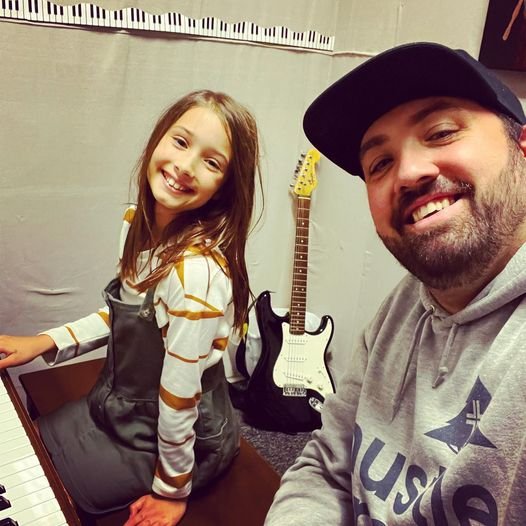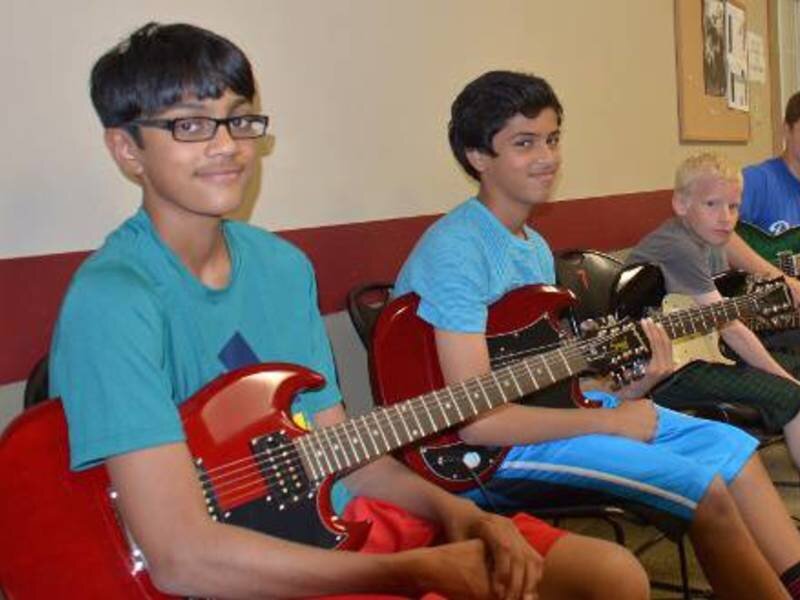1. Improved academic skills – Research shows that music students perform better on mathematical, reading, and spelling tests than non-music students. Music students have higher IQ scores and better grade performance than non-music students. In fact, IQ raises 1/6 of a point for each month of music student. That means that a student who studies music for six years will have an IQ of 7.5 points higher than a similar performing student without musical instruction. The results have been found to be even more dramatic for young students. In one study, groups of six-year old students were divided into three groups, one who were given music lessons, one who was given drama, and one that was given neither. Over the course of the school year, the music students tested on average three IQ points higher than the other groups.
2. Music study develops language and reasoning skills - Students who have early musical training develop the areas of the brain related to language and reasoning. The logical and creative parts of the brain are better developed with music, and songs can help impart information for better recall.
3. Improved social abilities – Performance in music encouraging working together and cooperative learning. Students performing in an ensemble learn how to play off each other and that every person in the group’s individual success is crucial to the success of the group’s goals.
4. Increased memorization abilities - Even when performing with sheet music, musicians are constantly using their visual, auditory, and kinetic memory to perform.
5. Strive for excellence - Learning music teaches students to value doing their best. Music students learn to want to create good work, instead of mediocre work which translates to other areas outside of music.
6. Better motor coordination - Music students, including instrumentalists and singers, develop better motor skills. After all, movement and music are intrinsically linked in our brains.
7. Learning healthy goal-setting - Learning music encourages students to set, work toward, and achieve reasonable goals.
8. More educational engagment - Student musicians are more likely to stay in school.
9. Better pattern repetition skills - Music is built based on patterns. Music students develop their mathematical and pattern-recognition skills.
10. Music encourages creative thinking - Introducing music in the childhood encourages a positive attitude toward learning and curiosity. Music develops a child’s imagination. Creative thinking leads to better problem solving in all areas, which extends into adulthood.
11. Music develops spatial intelligence - Students who study music show more developed spatial intelligence, which allows them to perceive the world accurately and create mental pictures. Spatial intelligence is important for advanced mathematics, working with computers, engineering, architecture, and more.
12. Increased self-confidence - With encouragement from caring teachers and parents, music students build healthy pride and confidence. Working towards performance goals leads to higher self-esteem.
13. Better attention span – Music students develop the ability to pay attention. For example, musicians do better at being able to follow a conversation is a noisy room full of conversing people.
14. Better in the moment decision-making - A musician must make many decisions in the moment when performing.
15. Increased communication abilities – Music provides a healthy outlet to express our emotions. (More on the emotional health benefits of music study in the next Music for Life post.)
While music study has proven intellectual benefits for children (and adults), the most important reasons to study music, as well as the most important results of music study is the joy it brings. Dr. Kyle Pruett, clinical professor of child psychiatry at Yale School of Medicine explains it well. “It’s important not to oversell how smart music can make you. Music makes your kid interesting and happy, and smart will come later. It enriches his or her appetite for things that bring you pleasure and for the friends you meet.” Music increases happiness, which leads to better performance in all areas of life.










